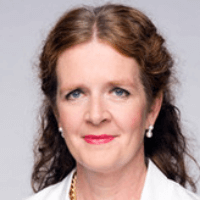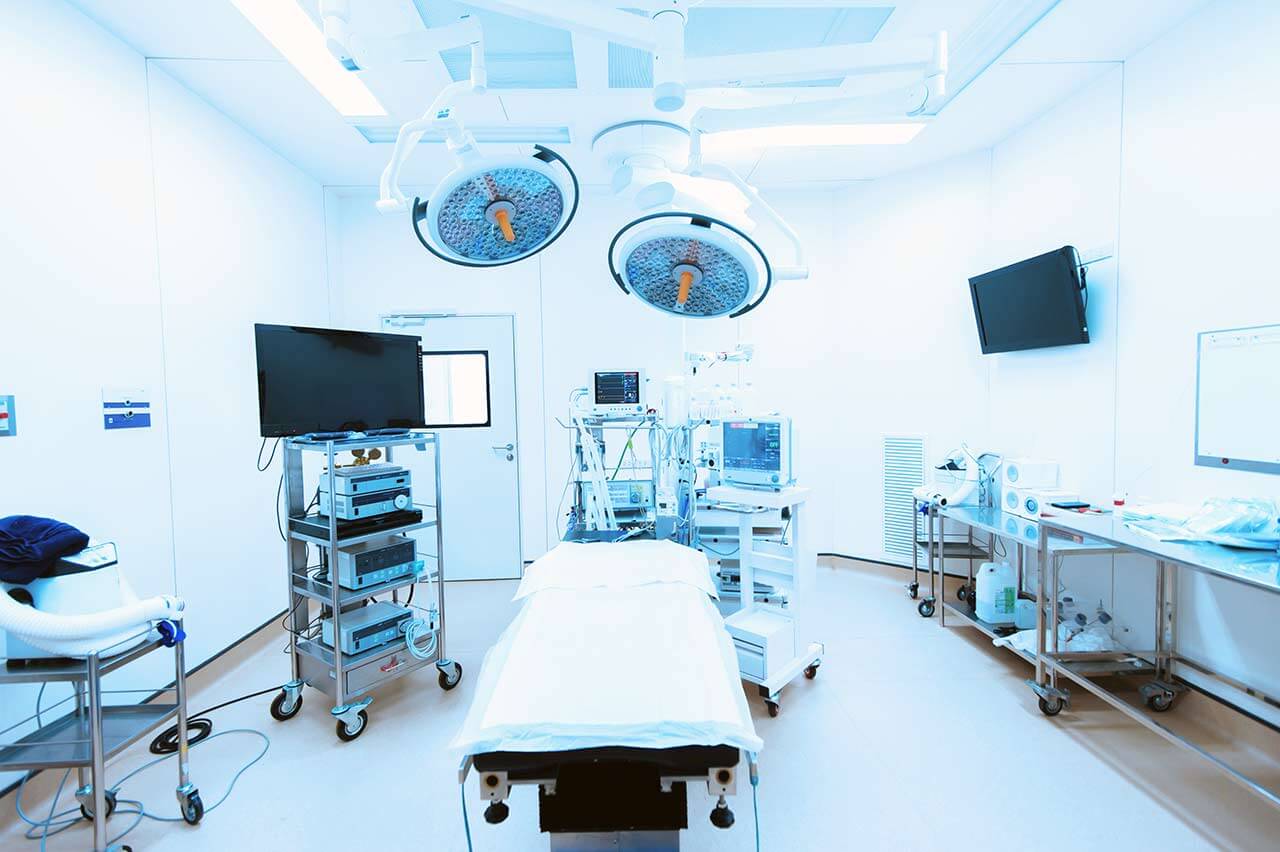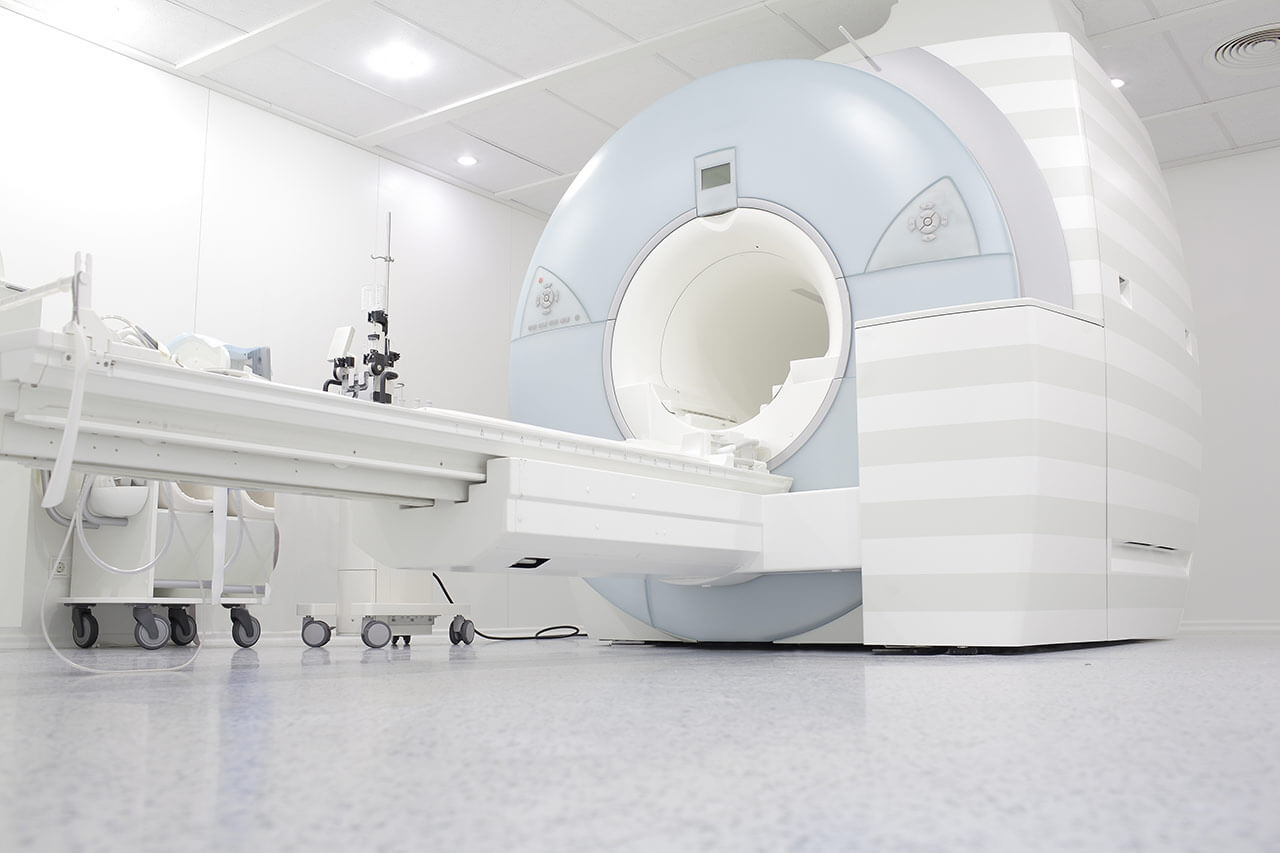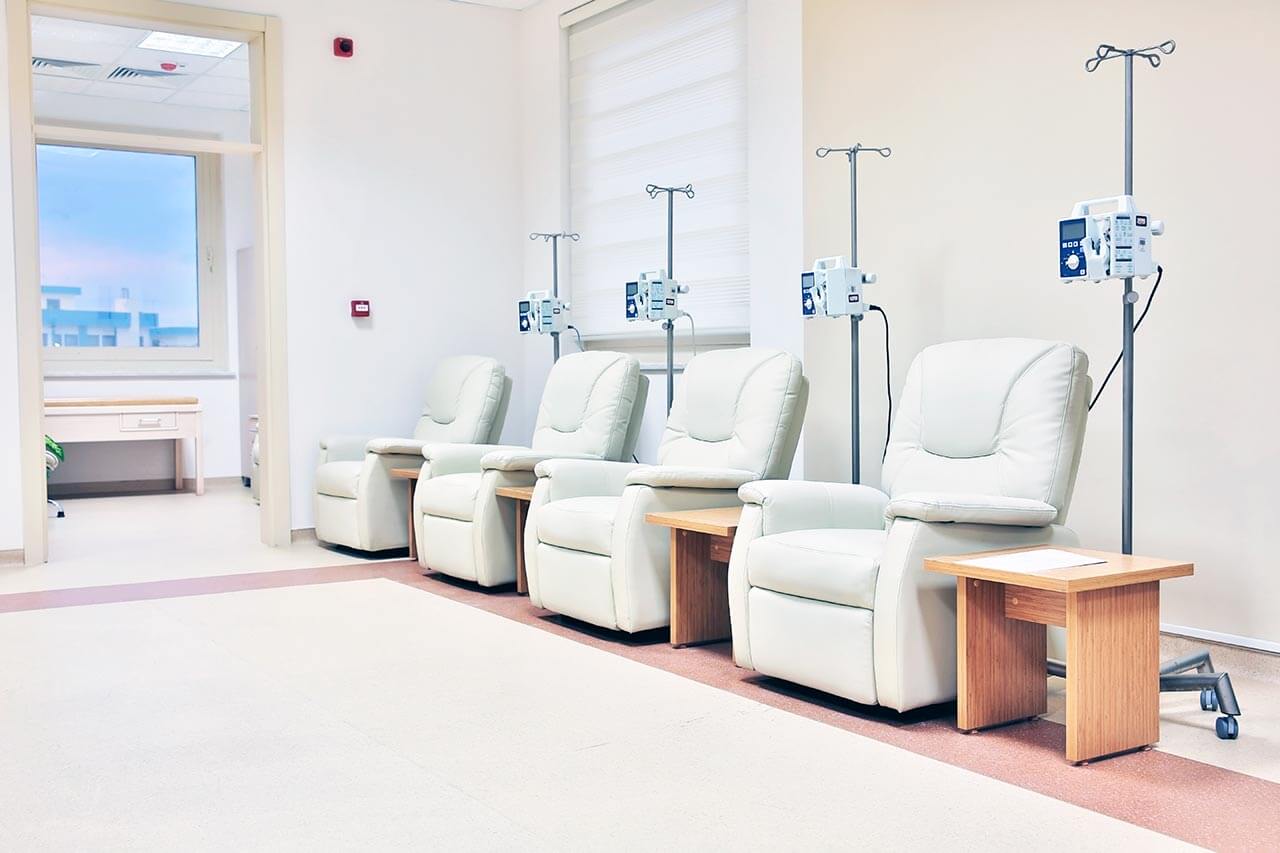
The program includes:
- Initial presentation in the clinic
- clinical history taking
- review of medical records
- physical examination
- neurological examination
- laboratory tests:
- complete blood count
- biochemical analysis of blood
- TSH-basal
- inflammation indicators
- indicators blood coagulation
- MRT angiography of the head
- electromyogrphy
- electrophysiology
- cardiology tests
- nursing services
- services of all leading experts
- explanation of individual treatment plan
Service
You may also book:
 BookingHealth Price from:
BookingHealth Price from:
About the department
The Department of Neurology and Epileptology at the Hospital Nordwest Frankfurt am Main offers all the options of modern medicine for the diagnostics and treatment of diseases of the brain and spinal cord, nerves and muscles. The team of the department's neurologists is proud of its rich and successful experience in the treatment of various neurological disorders, including especially complex ones. The focus of the department's doctors is on patients with stroke, multiple sclerosis, myasthenia gravis and epilepsy. The department specializes in conservative treatment of diseases of the nervous system. The department has a specialized Stroke Unit certified in accordance with the requirements of the German Stroke Society. The Stroke Unit has 7 beds equipped with state-of-the-art monitoring systems to control vital signs in stroke patients. In addition, the department operates a Neurological Intensive Care Unit. The patients can receive medical care both on an inpatient and outpatient basis. The department is known as one of the best Neurology Centers throughout Germany. The department is headed by Prof. Dr. med. Uta Meyding-Lamadé.
The department is certified as the Multiple Sclerosis Center, and therefore it can offer its patients the highest quality treatment for this complex neurological disorder. As of today, there are no therapeutic methods that could completely cure multiple sclerosis, but the department's specialists successfully use modern treatments to control pathology and prevent disability. It is worth noting that the disease usually affects young people. State-of-the-art diagnostic equipment available in the department allows the doctors to detect multiple sclerosis at the very early stages. The diagnostic protocol for suspected disease includes clinical examination, recording of evoked potentials, lumbar puncture, magnetic resonance imaging of the brain and spinal cord. To treat multiple sclerosis, the department's neurologists use only the most modern drugs, which have proven their effectiveness. The selection of drugs depends on the goals of therapy. These may be the treatment of pathology exacerbation, prevention of disease progression and disability, as well as symptom relief. When planning a treatment regimen, the department's doctors always take into account the patient's age, the presence or absence of concomitant diseases, and other important factors. Symptom relief involves the use of such supportive methods as physiotherapy, occupational therapy, speech therapy, psychotherapy and neuropsychological therapy.
The treatment of epilepsy is also one of the priority areas of the department's medical team. This neurological disorder cannot be completely cured, so the doctors use modern pharmacotherapy to control the disease and reduce the number of epileptic seizures. During the examination, the department's specialists determine the particular type of epilepsy, after which they prescribe the most effective antiepileptic drugs to the patient. In addition to anticonvulsants, hormonal drugs can also be used. Another conservative treatment for epilepsy, which is actively used by the neurologists of the medical facility, is a ketogenic diet. It is based on consuming foods with a high fat content and limiting carbohydrates. Changing the diet allows the patient to correct metabolic processes in the body, including metabolic processes in the central nervous system.
The department's doctors are especially focused on the treatment of myasthenia gravis as well. The department has a quality certificate in the treatment of this pathology. Myasthenia gravis is a serious disease, which affects both a person's nerves and muscles. It is chronic and progresses over time. The confirmation or exclusion of the diagnosis requires laboratory diagnostics (antibody tests), electrophysiological tests, computed tomography of the thoracic organs (thymus gland) and magnetic resonance imaging of the skull bones (if clinically indicated). The treatment is mostly based on drug therapy – the intake of cholinesterase inhibitors to relieve symptoms, cortisone drugs and immunosuppressants. In rare cases, the patients with myasthenia gravis may be indicated for surgery to remove the thymus gland (usually it is a minimally invasive procedure).
The department's doctors often admit patients with infectious diseases of the nervous system. The most common of them include bacterial meningitis, tuberculous meningitis and neuroborreliosis. The treatment is based on a well-chosen complex of drugs.
The department's main clinical focuses include:
- Diagnostics and treatment of stroke (emergency medical care and follow-up monitoring)
- Diagnostics and treatment of multiple sclerosis
- Diagnostics and treatment of epilepsy
- Diagnostics and treatment of myasthenia gravis
- Diagnostics and treatment of impaired consciousness caused by the traumatic brain injuries, stroke, tumors, etc.
- Diagnostics and treatment of infectious diseases of the nervous system (for example, bacterial meningitis, tuberculous meningitis, neuroborreliosis)
- Neurological intensive care
- Other medical services
Curriculum vitae
Higher Education and Professional Career
- 2015 Head of the Institute of International Medicine and Telemedicine Frankfurt.
- 2013 - 2016 Medical Director of the Hospital Nordwest Frankfurt am Main.
- 2011 - 2013 Deputy Medical Director of the Hospital Nordwest Frankfurt am Main.
- 2011 Professor of Neurology at the University Brunei Darussalam.
- 2010 Chief Physician, Stroke Rehabilitation Center, Brunei Darussalam.
- 2010 Appointed as Member of the Drug Commission of the German Medical Association.
- 2007 Chief Physician, Stroke Unit, Hospital Hofheim am Taunus.
- 2005 Chief Physician of the Department of Neurology and Epileptology at the Hospital Nordwest Frankfurt am Main.
- 2005 Additional qualification in Neurological Intensive Care.
- 2005 Professor of Neurology at the Heidelberg University.
- 2003 Additional qualification in Quality Management in Healthcare.
- 2003 Managing Senior Physician.
- 2000 Habilitation. Subject: "In vivo studies of the pathogenesis of encephalitis caused by herpes simplex virus".
- 2000 Senior Physician in the Department of Neurology at the University Hospital Heidelberg.
- 2000 Chief Physician of the Polyclinic of Neurology at the University Hospital Heidelberg.
- 1999 Board certification in Neurology.
- 1997 Additional qualification in Emergency Care.
- 1992 - 1999 Assistant Physician in the Department of Neurology at the University Hospital Heidelberg.
- 1991 Doctoral thesis defense in medicine and admission to medical practice.
- 1989 - 1992 Intern and then Assistant Physician in the Department of Neuroradiology at the University Hospital Heidelberg.
- 1982 - 1989 Study of Human Medicine, Heidelberg University (Germany), Institute of Neurology, University of Glasgow (UK), University of Memphis, Tennessee (USA) – scholarship of the German Academic Exchange Service (DAAD).
Teaching Career
- Regular teaching activities in the Department of Neurology at the University Hospital Heidelberg.
- Practical training for students at the University Hospital Heidelberg.
- Teacher of the Heicumed program (Neurology).
- Lecture "Selected topics in Neurology" for student trainees at the University Hospital Heidelberg.
- General Clinical Research Course, Introductory Clinical Medicine Course, Neurology Course for Medical Students.
- Examinator at the Medical Association of the State of Hesse, Intensive Care in Neurology.
- Regular teaching activities at the University Brunei Darussalam.
- Regular teaching activities at the Medical Association of the State of Hesse.
- Regular review of writings for numerous national and international journals.
- Regular reviewer of research protocols, research funding at the Heidelberg University, German-Israeli funding programs.
Clinical Interests
- Neurological intensive care.
- Multiple sclerosis.
- Neuroimmunology.
- Infectious diseases of the nervous system.
Scholarships, Prizes, Awards and Other Honors
- Badge of Honour of the City of Frankfurt am Main.
- Telemedicine Prize of the German Society of Telemedicine.
- Noble Title of the Sultan of Brunei.
- 1995 - 1996 Annual Scholarship of the German Academic Exchange Service (DAAD), University of Glasgow, UK.
- 1987 - 1988 Internship at the Institute of Neurology, UK.
- 1998 - 2000 Grant from the University of Heidelberg.
- 1988 Annual Scholarship of the University of Tennessee Health Science Center, Memphis, USA.
- 1988 Scholarship of the German Academic Exchange Service (DAAD).
- 1994 First Prize for Research in Clinical Virology awarded by the German Society for Virology, Annual Meeting of the German Society for Virology.
- 1996 Poster Award at the Annual Meeting of the German Neurological Society, Göttingen.
- 1997 Poster Award at the Annual Meeting of the German Neurological Society, Dresden.
- 1999 Poster Award at the Annual Meeting of the German Working Group on Neurological Intensive Care, Karlsruhe.
- 2000 Experimental Poster Award on Herpetic Encephalitis.
- September 2002 Braunstiftung Foundation Prize.
- 2001 First Poster Prize.
Memberships in Professional Societies
- Head of the Commission for the Development of Clinical Guidelines of the German Neurological Society (viral meningoencephalitis).
- German Neurological Society.
- Working Group on Neurological Intensive Care.
- European Neurological Society.
- Working Group on Multiple Sclerosis.
- Professional Association of German Neurologists.
- German Society for Clinical Neurophysiology and Functional Imaging.
- German Stroke Foundation (Regional Representative in Frankfurt).
- Scientific Advisory Board of the German Multiple Sclerosis Society.
- Working Group on Stroke, Organization for Healthcare Quality Management of the State of Hesse.
- Committee for Multiple Sclerosis Treatment with Immunomodulatory Drugs.
- International Scientific Working Group on the Tick-Borne Encephalitis.
- German National Commission for Poliomyelitis, Robert Koch Institute.
- Commission on Drug Policy of the German Medical Association (Extraordinary Member).
Photo of the doctor: (c) Krankenhaus Nordwest
About hospital
According to the reputable Focus magazine, the Hospital Nordwest Frankfurt am Main ranks among the top German medical facilities!
The hospital has a reputation of a modern multidisciplinary medical center with excellent quality of services. The medical complex is an academic hospital of the Goethe University Frankfurt, thanks to which it provides patients with treatment based on the very latest achievements of university medicine. The hospital has 12 specialized departments, as well as numerous narrowly focussed centers and institutes, whose doctors work hand in hand for the benefit of their patients. The hospital has 582 beds. The medical staff of the hospital annually provides diagnostics and treatment to more than 21,800 inpatients, while over 36,000 patients receive medical care on an outpatient basis.
The hospital presents such medical fields as oncology and hematology, radiation oncology, gynecology, urology, neurology, internal medicine, general and abdominal surgery, thoracic surgery, vascular surgery and others. Each of these medical fields is represented by a professional team of doctors and nursing staff. Oncology is one of the priority focuses of the hospital. In 2008, the Johann Wolfgang Goethe University Hospital Frankfurt together with the Hospital Nordwest Frankfurt am Main founded the University Cancer Center Frankfurt recognized by the German Cancer Aid as one of the best in Germany. In this high-tech center, the patients receive effective interdisciplinary medical care, since not only oncologists, chemotherapists and radiation oncologists are involved in the therapeutic process, but also specialists from related disciplines, including gynecologists, urologists, gastroenterologists, pulmonologists, surgeons and other experts. The patients are also provided with qualified psychological care, which is an integral part of the successful cancer treatment. Thanks to its status as an academic hospital, the medical facility gives patients the opportunity to participate in clinical trials at both national and international levels.
The hospital is proud of its health facilities and state-of-the-art equipment, which plays an important role in the effective diagnostics and treatment. For example, since 2016, the Department of Radiation Oncology has been using cutting-edge Truebeam STx NOVALIS linear accelerators from VARIAN and Brainlab, which allow the doctors to provide highly effective, but very sparing, radiation therapy for cancer treatment. Despite the presence of modern medical technologies in the hospital, the focus of the doctors is on the patient with his individual needs and wishes. The specialists pay attention to creating a friendly atmosphere in the hospital and always demonstrate humanity in relation to their patients.
The outstanding clinical activities of the medical complex are awarded by many prestigious certificates, including certificates of the German Cancer Society in the treatment of bowel, liver, prostate, gynecologic cancers, etc. The Aktion Saubere Hände certificate and a modern quality management system guarantee patients the highest safety standards during both diagnostic and therapeutic procedures.
Photo: (с) depositphotos
Accommodation in hospital
Patients rooms
The patients of the Hospital Nordwest Frankfurt am Main live in comfortable single and double rooms, corresponding to the level of a top-class hotel. Some single rooms have large panoramic windows offering beautiful views of the city of Frankfurt.
The patient room furnishing includes an automatically adjustable bed, a bedside table, a wardrobe with a built-in safe, a desk with a chair and a reading lamp, a TV, a telephone and a mini-fridge. The patient rooms have Wi-Fi (at an extra fee). All patient rooms have an ensuite bathroom with shower and toilet. In the bathroom one can find changeable towels, a bathrobe, a hairdryer and toiletries.
The hospital has a cafe on its territory, where one can not only have a tasty snack, but also buy newspapers, magazines, personal hygiene products, drinks, sweets and much more.
Meals and Menus
The patients of the hospital are offered delicious and varied three meals a day: breakfast, lunch and dinner. Meals are served to patients in their room. During the day, the patients are provided with fresh fruits, juices, coffee, tea and mineral water.
If you are on a specific diet for some reason, you will be offered an individual menu. Please inform the medical staff about your dietary preferences prior to the treatment.
Further details
Standard rooms include:
Religion
The religious services are available upon request.
Accompanying person
During the inpatient program, the accompanying person can live with the patient in a patient room or a hotel of his choice. Our managers will help you choose the most suitable option.
Hotel
During the outpatient program, the patient can stay at the hotel of his choice. Our managers will help you choose the most suitable option.





